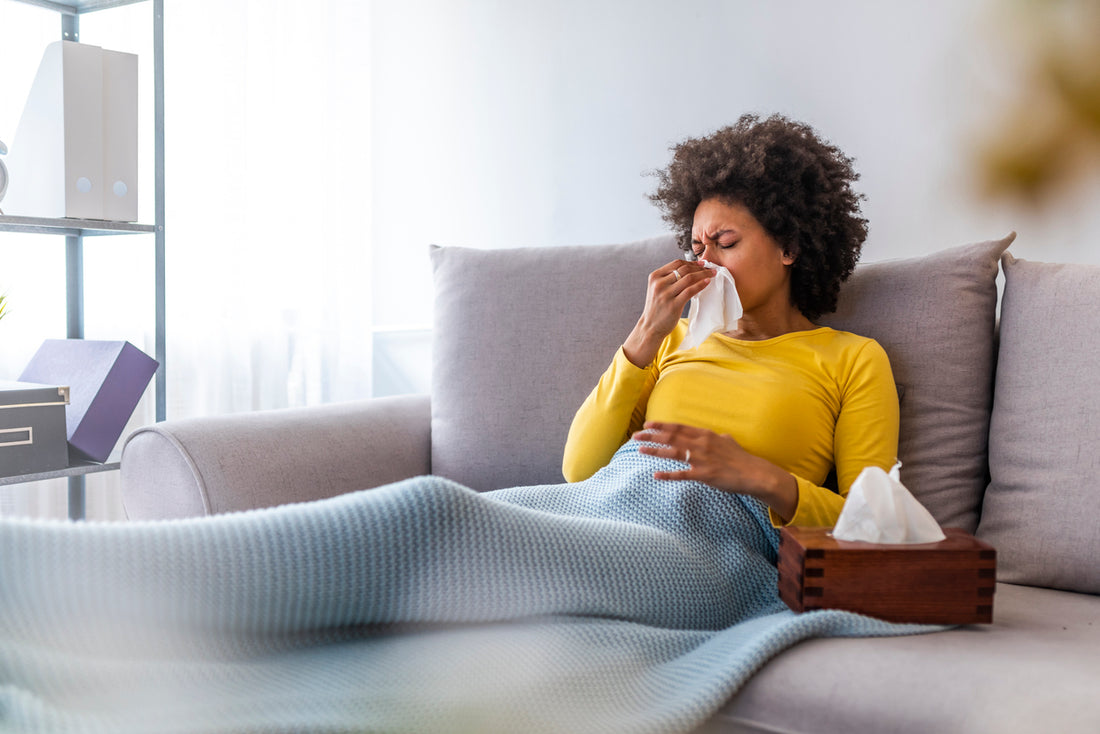7 recommendations to improve seasonal allergies, natural plants, remedies, and learn when to visit the doctor
The beginning of spring makes the days begin to get warmer, the sun shines brighter and the rains appear, making the environment filled with elements that cause terrible allergies.
Seasonal allergies consist of inflammation of the membranes of the nose, causing sneezing, nasal congestion, itching of the nose, palate, throat, eyes, and ears, and generally affect the daily routine and normal behavior of people, achieving discomfort and discomfort in the body.
However, there are medications and natural remedies that can help when this unpleasant discomfort arises. If you are one of the people who usually have these types of problems and you are looking for medicines and natural remedies for seasonal allergies, we have these recommendations for you.
Causes of seasonal allergies and their symptoms
Most people are allergic to pollen, their hypersensitivity is stronger in spring, summer, and autumn and this arises when the amount of pollen in the air is higher.
Another contributing factor is mold, which is a common seasonal allergen. For this reason, the consumption of antihistamines is recommended to avoid allergic reactions, which consists of a partial solution to control all these discomforts. This substance blocks the activity of histamine calming the allergic reaction.
Some of the symptoms of seasonal allergies that are most relieved are the following:
- Strong nasal congestion.
- Itchy ears, eyes, nose, and throat.
- Swollen eyelids.
- Skin irritation.
- Low energy level
Difference Between Seasonal Allergies and a Cold
Congestion is a symptom that is associated with allergies and common cold viruses. Apart from being differentiated by the agent that causes this respiratory reaction, we can say that the duration is another differentiating factor.
Nasal obstruction due to congestion that is related to cold reduces over time, that is, your period persists for the duration of the virus cycle. Therefore, colds usually last very little and disappear in a few days.
In contrast, congestion and other symptoms related to seasonal allergies can last more or less time, always depending on the duration of exposure to the allergen, whether, for example, exposure to mold or pollen.
Natural Remedies To Treat Seasonal Allergies
Generally, there are endless amounts of natural remedies and care that we can do at home, but the most used by people who have seasonal allergies is gargling with salt water, which serves to relieve sore and burning throat.
It is also often chosen to cleanse the nose and throat of possible allergens, such as pollen or mold, using a saline nasal rinse or a special container.
In addition, there are medicinal plants to treat seasonal allergies that can be taken and used in different ways, so it is always necessary to discuss this with your doctor, pharmacist, or herbal therapist beforehand.
Some of the plants are:
- Chinese astragalus
- Elderberry
- Echinacea
- Eyebright
- Gordolobo or guardian wolf
- Gan Cao
- Huang qin
- Yarrow
- Perpetual or shepherd's chamomile
- Reishi
- Golden sun or tinder thyme
In addition, not to achieve an antihistamine effect per se, but to improve throat discomfort and clear nasal congestion, ginger infusion with a little honey is effective.
7 ways to improve seasonal allergies naturally
- Avoid leaving your house on days with more allergens in the environment, that is, during dry and windy days.
- Try not to cut the grass or clean the weeds, by doing so you will quickly clog the nostrils, to avoid this, it is suggested not to do it in the middle of allergy season or wear a mask and shower afterward to remove the remains of pollen from your body.
- Start taking allergy pills before you have the first symptoms.
- Keep indoor air clean by using a dehumidifier. Dust the floor using a vacuum cleaner, thus avoiding getting dust and pollen.
- Rinse the nostrils with saline solution, this will help expel mucus and allergens from the nose.
- Always keep in touch with your trusted allergy doctor: Although allergies can be coped with naturally with herbs, essential oils, lifestyle changes, and home remedies, you need to consult with your trusted doctor.
- Avoid the hours of the highest concentration of pollen: There are several times when the concentration of pollen is higher, so you will be more susceptible to seasonal allergies. These hours start from 5:00 a.m. to 10:00 a.m., and then from 7:00 p.m. to 10:00 p.m. Avoid outdoor activities during these hours and stay in spaces where cleanliness and humidity are controlled.
When to See a Doctor?
If you're trying to calm your symptoms before seeing a doctor, avoid using more than one class of over-the-counter medication at the same time. If you have a diagnosed condition, such as high blood pressure, diabetes, or heart disease, or if you're pregnant or breastfeeding, it's a good idea to see your doctor as soon as possible.
However, the pharmaceutical expert recommends that you take into account everything indicated in this post so that you can improve seasonal allergies in the shortest possible time.
Will the allergy stay forever?
Allergies and their symptoms such as acute rhinitis can cause other types of chronic conditions that must be taken into consideration, some of these can be bronchial diseases, respiratory infections, or asthma. It is not normal to constantly suffer from flu and cough, if you think that the cause is always allergic, you need to consider changes in your lifestyle and the environment where you are.
The nose is responsible for filtering the air we breathe, in addition to moisturizing and evaporating, if this nasal function is not optimal, our respiratory system will be prone to other diseases that can seriously affect health.
If you find this post helpful Please Like, Share and Follow. @greatermood
Also check out our other health Topics here
References
- https://pubmed.ncbi.nlm.nih.gov/31333340/
- https://www.ncbi.nlm.nih.gov/books/NBK538186/

